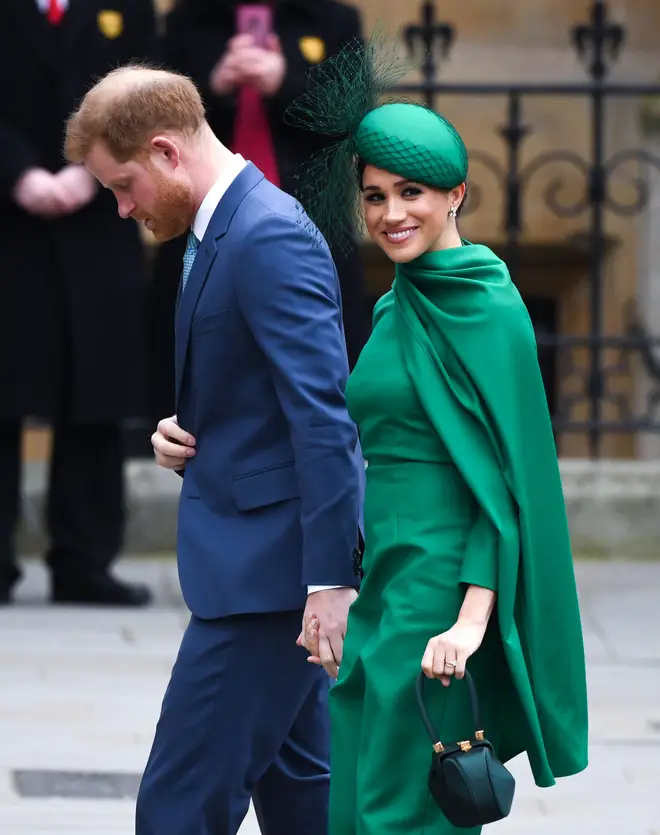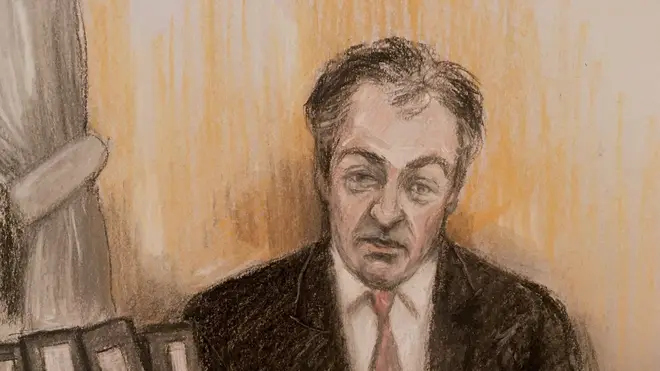
Ali Miraj 6pm - 9pm
11 February 2021, 16:10 | Updated: 11 February 2021, 17:26

The Duchess of Sussex has won her High Court privacy claim against the Mail on Sunday over the publication of a "personal and private" handwritten letter to her estranged father, Thomas Markle.
Meghan, 39, sued Associated Newspapers Limited (ANL) - the publisher of The Mail On Sunday and MailOnline - over a series of articles which reproduced parts of the letter sent to 76-year-old Thomas Markle in August 2018.
She took legal action for alleged misuse of private information, copyright infringement and breach of the Data Protection Act over five articles published in February 2019, which included extracts from the letter.
In a ruling on Thursday, Mr Justice Warby granted Meghan "summary judgment" in relation to her claim for misuse of private information, meaning she has won that part of the case without going to trial.
The judge also granted summary judgment in relation to most of the duchess' copyright claim, but said the issue of whether Meghan was "the sole author" of the letter - an issue he said was "of minor significance in the overall context" - should be determined at a trial.

In a statement after the ruling, the duchess said: "After two long years of pursuing litigation, I am grateful to the courts for holding Associated Newspapers and The Mail On Sunday to account for their illegal and dehumanising practices."
She added: "The world needs reliable, fact-checked, high-quality news.
"What The Mail On Sunday and its partner publications do is the opposite.
"We all lose when misinformation sells more than truth, when moral exploitation sells more than decency, and when companies create their business model to profit from people's pain.
"But, for today, with this comprehensive win on both privacy and copyright, we have all won.
"We now know, and hope it creates legal precedent, that you cannot take somebody's privacy and exploit it in a privacy case, as the defendant has blatantly done over the past two years."
A spokesperson for ANL said: "We are very surprised by today's summary judgment and disappointed at being denied the chance to have all the evidence heard and tested in open court at a full trial.
"We are carefully considering the judgment's contents and will decide in due course whether to lodge an appeal."

Mr Justice Warby said that "the only tenable justification for any such interference was to correct some inaccuracies about the letter", contained in an article in People magazine which featured an interview with five friends of Meghan.
He added: "The inescapable conclusion is that, save to the very limited extent I have identified, the disclosures made were not a necessary or proportionate means of serving that purpose.
"For the most part they did not serve that purpose at all. Taken as a whole the disclosures were manifestly excessive and hence unlawful."
Mr Justice Warby also found that the publication of the letter to Thomas Markle infringed the duchess' copyright.
He said an electronic draft of the letter "would inevitably be held to be the product of intellectual creativity sufficient to render it original in the relevant sense and to confer copyright on its author or authors".
The judge also found that the Mail on Sunday's articles "copied a large and important proportion of the work's original literary content".
But Mr Justice Warby said issues of whether Meghan was "the sole author" - or whether Jason Knauf, formerly communications secretary to the Duke and Duchess of Sussex, was a "co-author" - should be determined at a trial.